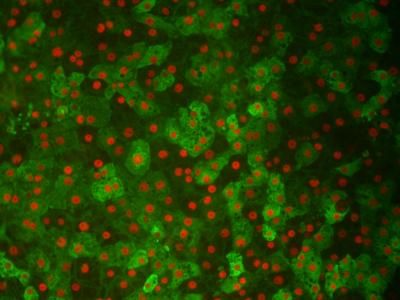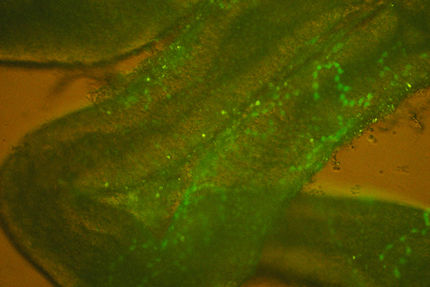Uncertainty reigns as biotech patents remain unharmonised
Advertisement
The EU Commission has published its long awaited 2nd report (link below) on the EU Biotechnology patents Directive (Directive 98/44/EC). The report deals with "Developments and implications of patent law in the field of biotechnology and genetic engineering", and specifically investigates the issues of (i) patenting of human DNA, and (ii) patenting of human stem cells. These issues have for a long time been at the centre of a debate as to whether inventions comprising human gene sequences or human stem cells can be patented. On both issues the Commission recommends to continue monitoring the developments, and has refrained from taking a position, judging it premature to do so at this stage.
Implementation of Directive 98/44
The Directive entered into force in July 2000, and 21 Member States of the EU have now implemented the Directive with Italy, Luxembourg, Lithuania and Latvia still remaining. Furthermore the EEA states Norway and Iceland have implemented the Directive, and the Candidate State of Croatia. It seems that the Commission is unaware that the Candidate States of Bulgaria, Romania and Turkey have all actually implemented the Directive. Finally, the Commission does not mention that the European Patent Organisation, including France and Germany implemented the Directive as early as 1999. Thus a total of 27 States and one international patent organisation have implemented the Directive, while four EU Member States and Switzerland/Liechtenstein still are in the process.
On gene sequences
Two EU Member States, France and Germany, have in different ways limited the scope of patent protection for human gene sequences to the specific use disclosed in the patent application - generally known as "purpose bound protection". France has outrightly banned the patenting of human gene sequences.
The remaining countries provide absolute product protection for human gene sequences that gives a scope covering possible future uses of that sequence.
While the Commission considers that there are no objective grounds for limiting the protection relating to sequences or partial sequences of human genes, it has decided to withhold judgement on whether these Member States have correctly or incorrectly implemented the Directive and instead monitor whether there are any economic consequences arising from such divergences.
EuropaBio - the European association for bioindustries is disappointed that the Commission has not taken a firmer stand on the deviating implementation of the Directive in respect of the patenting of human gene sequences.
"The main objective for introducing the Directive in 1988 and in 1995 was to harmonise the patent laws of the EU Member States in respect of biotechnological inventions and clarify certain aspects in this respect in order to support the internal market," says Bo Hammer Jensen, Chair of EuropaBio's Intellectual Property Working Group. "We have to conclude that the actual result is a situation with more disharmony than ever, and with the possibility that the four remaining states may implement the Directive in yet unknown ways."
"Patent rights are of extreme importance in the biotech industry, especially for SMEs that often only have these rights as their most important assets. The divergences in how certain Member States have implemented the Directive and the uncertainties about how national courts in these Member States will interpret a company's patent may discourage investment in developing promising research into commercial products," adds Bo Hammer Jensen. "Industry requires predictable rules across all Member States in order to attract the large R & D investments to meet societal needs."
On embryonic stem cells
A distinction is drawn between totipotent stem cells which are capable of developing into a human being and pluripotent stem cells which are not so capable. The Commission confirms that the Biotech Patents Directive is clear regarding totipotent cells arguing that such cells cannot be patented as each cell could develop into a human being.
However with regard to pluripotent stem cells where cells may one day be used to treat a patient for example suffering from Alzheimer's disease, the Directive is less certain. The Directive allows Member States to refuse patents on ethical grounds. Given that there are differences between Member States on the issue of embryonic stem cells, the Commission has decided not to take a position on harmonising rules on the use of pluripotent stem cells.
In the EuropaBio position on human stem cell research the biotech industry considers that embryonic stem cell research must be allowed in order to advance knowledge in biomedicine and its applications in healthcare. The industry considers that Member States and their constituencies should remain free to decide about the acceptance and applicability of embryonic stem cell research and to adopt appropriate rules.
Patents crucial to R & D investment
Patents are an essential element in an investor's decision to back a biotech company. "In the knowledge based economy, intellectual property is the only real form of protection to inventors and investors who invest in R & D to meet society's needs. It is important for Member States to provide security to those that are willing to take the investment risks to address the 10 000 plus diseases that still have no solution today," says Johan Vanhemelrijck, EuropaBio Secretary General. "The importance of patents to develop treatments has also been recognised and understood by some patient groups who are themselves using patents to develop new treatments."
According to Alastair Kent, Director of the Genetic Interest Group, a national alliance of patient organizations: "It is important that there is parity of incentives on both sides of the Atlantic, otherwise investors will place their money where there is the best protection and the most likelihood of securing a return on their investment."
In a separate development, an EU Commission report published today reveals that the growth rate of R & D intensity (R&D expenditure as a % of GDP) has been declining in Europe since 2000 and is now close to zero. The Commission is especially concerned about slow down in business funding of R & D. As one of Europe's most research intensive industries, Biotechnology needs predictable patent rules to secure some of those increased investments.






















































